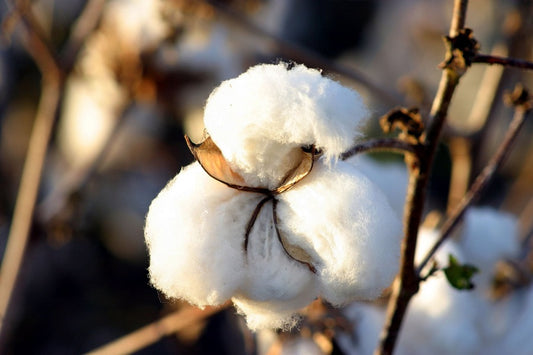What are the Sustainable Development Goals?
The SDGs are a collection of environmental and social priorities areas of focus set out by the United Nations General Assembly in 2015, intended to be achieved by 2030. There are 17 goals in total, which focus on everything from inequality to education, climate action to peace and justice.

Why are the SDGs important?
The SDGs recognise that tackling climate change must be seen within a broader global context. They prioritise a range of areas crucial to human development and future survival such as ending poverty, building sustainable economic growth, and addressing a range of social needs such as education and health.
How is Y.O.U Underwear working towards the SDGs?
The SDGs are a crucial impact framework for us, so we thought we’d outline how we’re trying to tackle some of these broad issues:
Goal 4: Quality Education
Something a lot of us take for granted, underwear is a BIG issue when you don’t have it. It can be a huge barrier to education for girls and women on their periods.
We’re helping to improve access to education for women and girls by donating underwear. We have a buy-one-give-two promise in partnership with Smalls for All, a Scottish charity that collects and distributes underwear to vulnerable women and children in Africa and the UK. So far, we have donated over 10,000 pairs of underwear, and are well on our way to reaching our target of 23,000 pairs by 2023.
Find out more about Smalls for All and how you can get involved!
Goal 5: Gender Equality
Women and girls on their periods are most at risk of social exclusion when they don’t have appropriate underwear! In some communities it is estimated that 1 in 10 girls miss school on their periods due to a lack of underwear and sanitary products. Without proper period protection, they’re left with no choice but to miss school – up to 12 weeks a year! This translates into a considerable divergence in educational progress and access to opportunities.
Find out more about the power of pants in terms of access to education, hygiene and community inclusion.
Goal 6: Clean Water and Sanitation
We use 100% organic cotton as certified by the Global Organic Textile Standard. Organic cotton creates 98% less water and soil pollution than conventional cotton as no pesticides or insecticides are used, as well as using 71% less water. Read more about the environmental benefits of organic cotton – it’s not just the amount of water, but the type of water too!
Goal 8: Decent Work and Economic Growth
We work with India’s leading ethical and sustainable manufacturer who is committed to supporting local communities, providing living wages and not using sweatshops or child labour. They are also active supporters of the Chetna Project, which works with small farmers to improve their livelihood options. The factory operates under SA8000 certified social standards. In addition to the basics – such as no child labour and working hours/minimum wage compliance – they’ve got a number of extra initiatives of their own, providing transport, meals and health planning for workers, as well as funding for their children’s education
If you want to find out more, take a look at this Introduction to our manufacturer.
Goal 12: Responsible Production and Consumption
We love talking about this one! We are committed to zero waste production, we package our underwear in reusable organic cotton bags, use recycled and recyclable outer packaging, and don’t use any single use plastics. We’ve recently switched to biodegradable mailers and have also signed up to the 2020 Circular Fashion pledge, and plan to implement a take-back scheme for our underwear by April 2021. Our underwear is also Fairtrade and Vegan! We believe in ethical marketing, so use ‘real’ people in all our photoshoots. We don’t know the meaning of the word ‘airbrush’ and have even hidden a number of feel-good messages in our products!
Our use of organic cotton also feeds into this commitment – check out our blog post on Cotton’s human cost which dives into some of the humanitarian concerns associated with conventional cotton production. Not only do organic cotton growing systems help to replenish and maintain soil fertility, they also allow farmers to be released from their dependency on artificial chemicals and are not associated with international streams of exploitation. Organic cotton is also much better for consumers, as pesticide residue can remain trapped in fibres right into the finished product.
The manufacturer of our underwear – all the way from yarn to Y.O.U undies – is designed with responsibility and efficiency in mind! Check out our step-by-step manufacturing process for more information.




